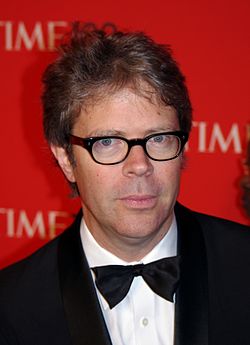Jonathan Franzen Quote
He was a lonely straight male, and a lonely straight male had no equivalently forgiving Theory of Masculinism to help him out of this bind, this key to all misogynies: To feel as if he couldn’t survive without a woman made a man feel weak; And yet, without a woman in his life, a man lost the sense of agency and difference that, for better or worse, was the foundation of his manhood.
Jonathan Franzen
He was a lonely straight male, and a lonely straight male had no equivalently forgiving Theory of Masculinism to help him out of this bind, this key to all misogynies: To feel as if he couldn’t survive without a woman made a man feel weak; And yet, without a woman in his life, a man lost the sense of agency and difference that, for better or worse, was the foundation of his manhood.
Related Quotes
About Jonathan Franzen
Jonathan Earl Franzen (born August 17, 1959) is an American novelist and essayist. His 2001 novel The Corrections drew widespread critical acclaim, earned Franzen a National Book Award, was a Pulitzer Prize for Fiction finalist, earned a James Tait Black Memorial Prize, and was shortlisted for the International Dublin Literary Award. His novel Freedom (2010) garnered similar praise and led to an appearance on the cover of Time magazine alongside the headline "Great American Novelist". Franzen's latest novel Crossroads was published in 2021, and is the first in a projected trilogy.
Franzen has contributed to The New Yorker magazine since 1994. His 1996 Harper's essay "Perchance to Dream" bemoaned the state of contemporary literature. Oprah Winfrey's book club selection in 2001 of The Corrections led to a much publicized feud with the talk show host.
Franzen has contributed to The New Yorker magazine since 1994. His 1996 Harper's essay "Perchance to Dream" bemoaned the state of contemporary literature. Oprah Winfrey's book club selection in 2001 of The Corrections led to a much publicized feud with the talk show host.
